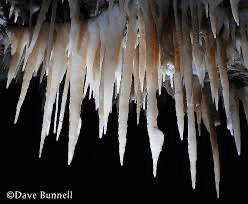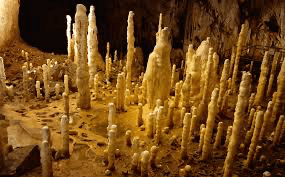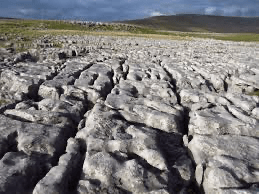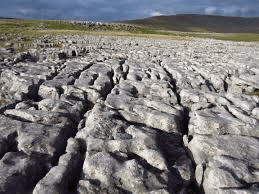Is freeze-thaw action mechanical or chemical weathering?
Mechanical
Name one process of chemical weathering
Carbonation
What type of landscape is The Burren?
A Karst landscape

Stalactites
Is acid rain dangerous for humans?
No, but it is dangerous for small fish and wildlife
What happens to the water when it turns to ice?
It expands
Burning fossil fuels
True or false? Permeable means that water can pass through

Stalagmites
When we say economic, what are we talking about?
Money
What is the broken pieces of rock called?
Scree
What does CO2 stand for?
Carbon Dioxide

This is called a L_________ P____________
Limestone pavement
Pillar
When we say environmental, what are we talking about?
Nature and wildlife
Why does freeze-thaw action happen mainly in upland areas?
It gets colder the higher the altitude
What rock is involved in carbonation?
Limestone

The gaps between the rocks are called
Grimes
Name a cave found in The Burren
Aileen Caves
When we say Social, what are we talking about?
People
Explain the process of freeze-thaw action
- Water collects in cracks in rocks
- Upland areas freeze overnight
- Water expands putting pressure on rock
- Eventually breaks leaving behind scree
Fill in the blanks:
The _________ carbonate in limestone reacts with the weak __________ acid in rain.
Calcium, Carbonic
The top part of the rocks are called
Clints
Why do stalactites and stalagmites take millions of years to form?
The water from the carbonation above leaves behind tiny amounts of calcite that build up over time
What is the difference between a cause and an impact?
A cause is what triggers an event, but an impact is what happens because of the event.